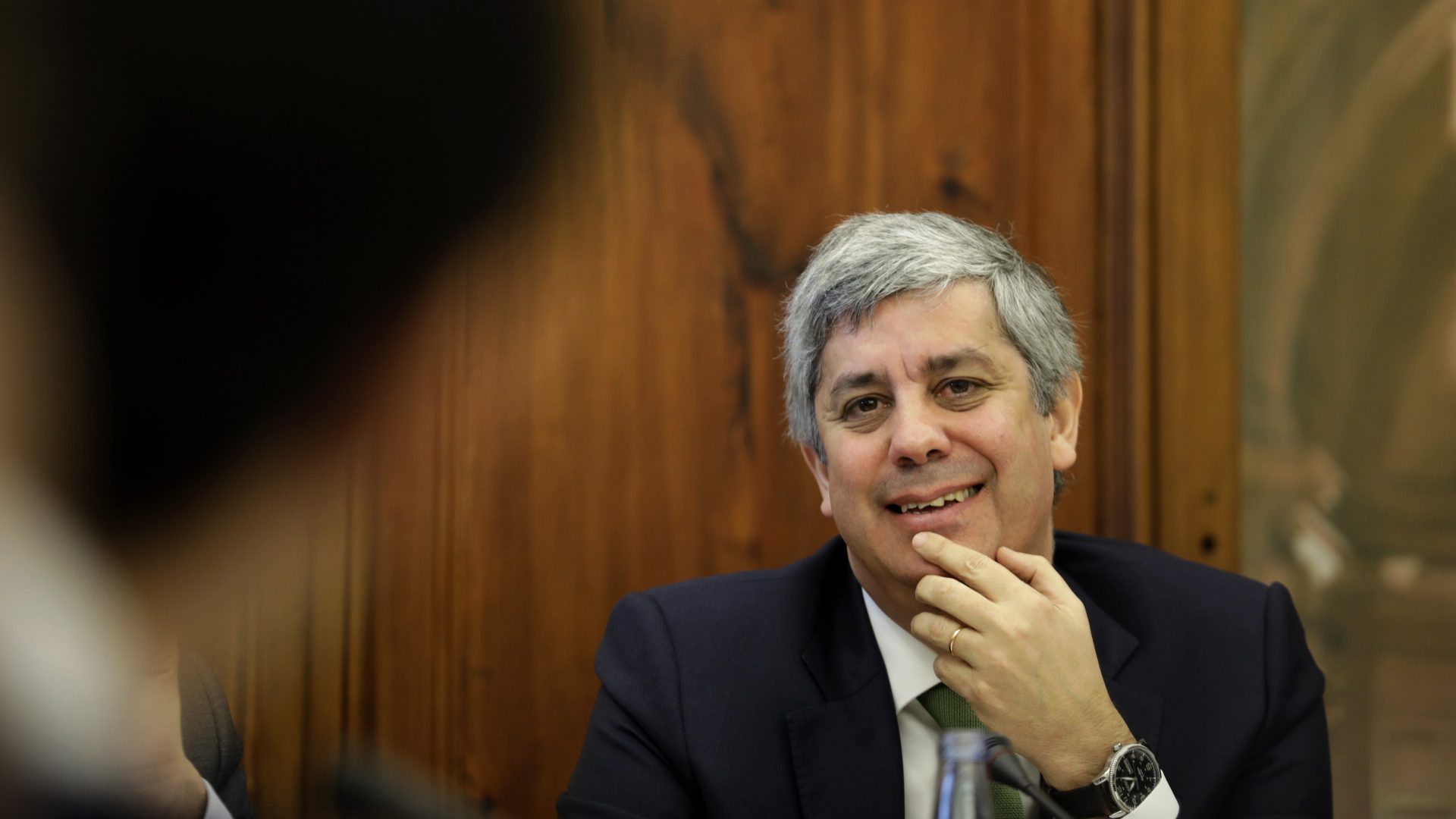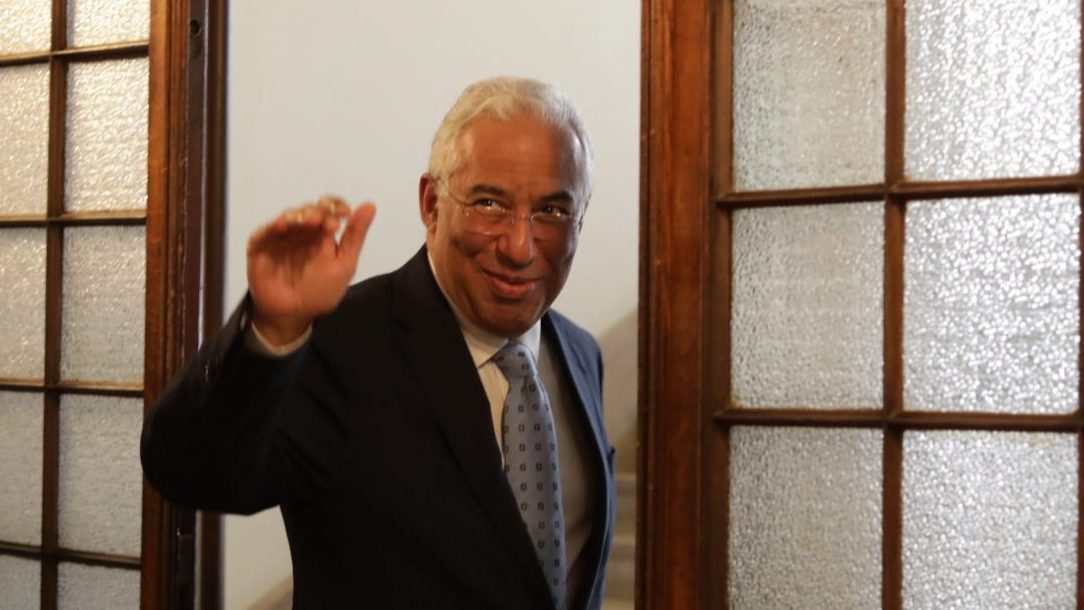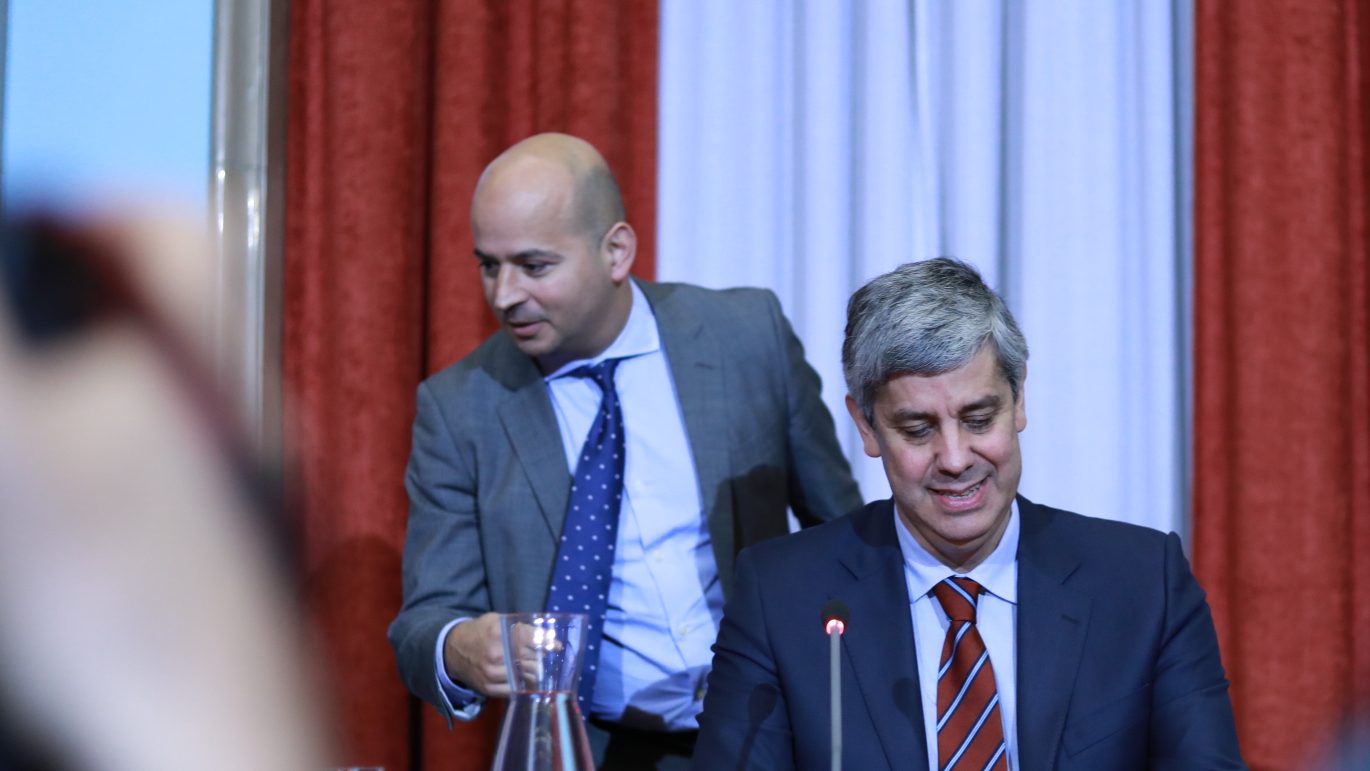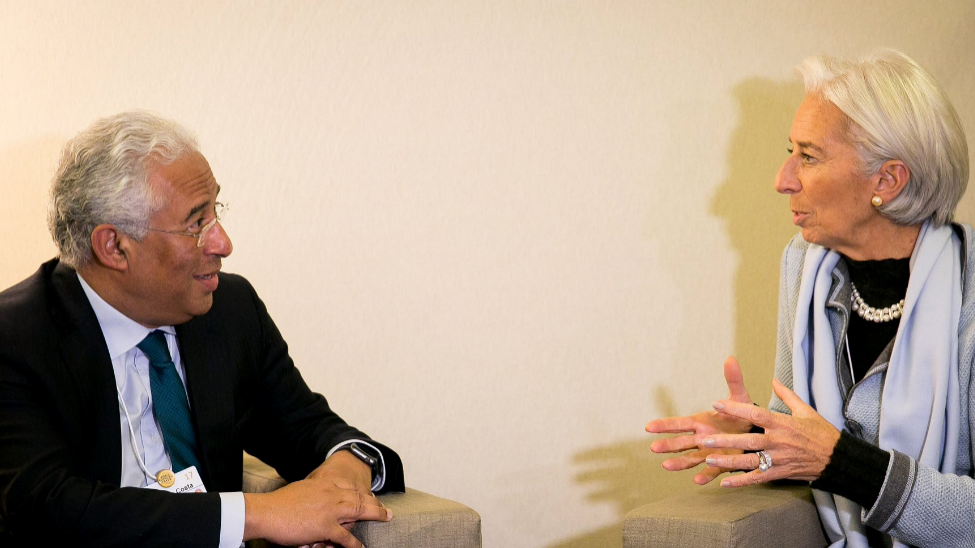IMF is in line with Costa: 2017 deficit should stand at 1.2%
The institution headed by Christine Lagarde expects the 2017 deficit will stand at 1.2%, the same number the Portuguese PM pointed out in the beginning of the year. It was a two decimals' improvement.
Christine Lagarde and António Costa are in sync about the evolution of the Portuguese public finance: according to IMF, the 2017 deficit stands at 1.2%, the same forecast as the prime minister’s. On the 6th Post-Programme Surveillance assessment, disclosed this Friday, the International Monetary Fund (IMF) improves by two decimals their forecast in December (1.4%), showing a larger trust in Mário Centeno’s goals.
Deficit forecasts: IMF vs. Government

“The headline fiscal balance continued to benefit from stronger [economic] growth, controlled budget execution, and falling interest costs, with the [Government’s] 2017 deficit target of 1.4 percent of GDP likely to have been met with some margin”, was stated in the document by IMF’s team which came to Portugal between November 28 and December 6. And that margin has a number: two decimals. The Fund improved its forecast from 1.4% in December to 1.2% now, in February.
The team headed by Alfredo Cuevas, the new IMF mission leader in Portugal, considered it was the surprising economic growth that contributed decisively to “better than anticipated fiscal outcomes in 2017”. Yet, at the same time, they warn in a footnote that “Eurostat is still to determine whether the recapitalization of the Caixa Geral de Depositos should be booked ‘above the line’”, adding that if that happens, “the 2017 deficit could be as high as 3.5 percent of GDP” in 2017.
In spite of the complementary tone, the International Monetary Fund considers the “structural consolidation in the primary fiscal balance remains essential to keep public debt on a firmly downward trajectory over the medium-term”. And the Fund also warns against “permanent” increases in spendings on Civil Service wages, which might question the sustainability of public finance when the economic cycle is negative.
Experts suggest an “adjustment focused on durable expenditure reform”. As an answer, the Portuguese authorities argue that the exercise of revising public expenditure will generate a 0.1% of GDP saving in 2018.
IMF is also in line with the Government for 2018: the deficit should stand at 1.1%, a one tenth reduction in comparison to 2017, if the forecast in confirmed. Cuevas’ team anticipates that this deficit decrease “largely reflects savings on interest payments”. According to the Fund’s calculations, expenses with interests should decrease to 3.7% in 2018, representing a one percentage point since 2015.




